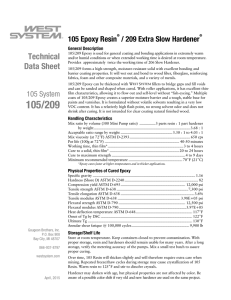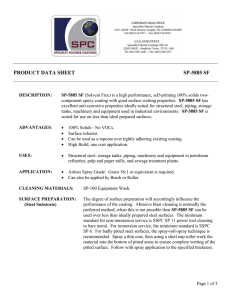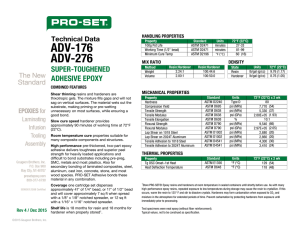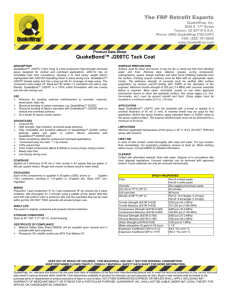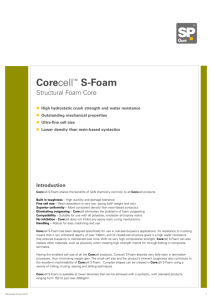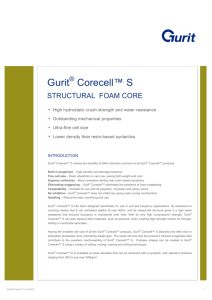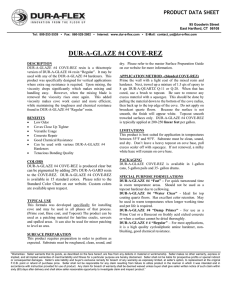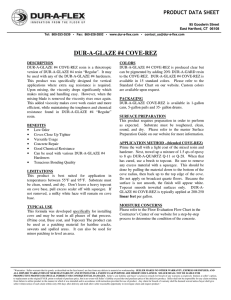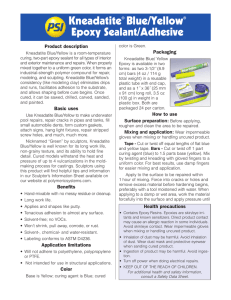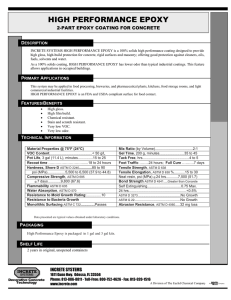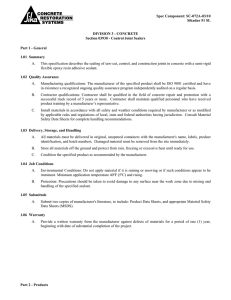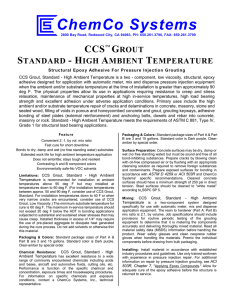105 Epoxy Resin / 206 Slow Hardener
advertisement
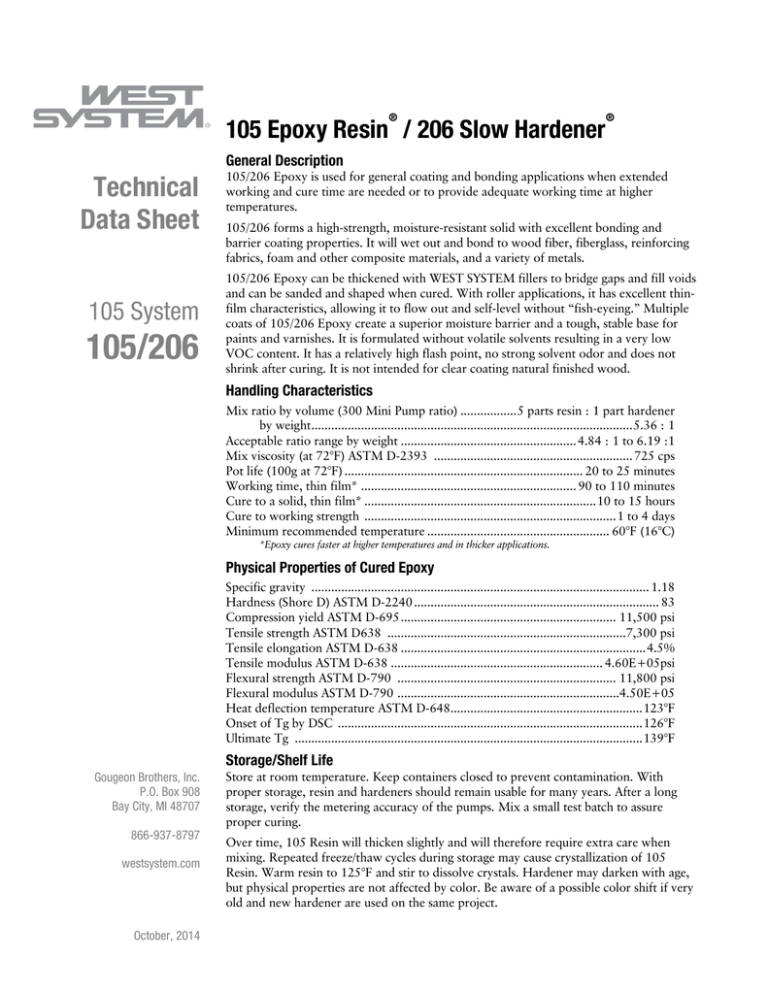
® 105 Epoxy Resin / 206 Slow Hardener ® General Description Technical Data Sheet 105 System 105/206 105/206 Epoxy is used for general coating and bonding applications when extended working and cure time are needed or to provide adequate working time at higher temperatures. 105/206 forms a high-strength, moisture-resistant solid with excellent bonding and barrier coating properties. It will wet out and bond to wood fiber, fiberglass, reinforcing fabrics, foam and other composite materials, and a variety of metals. 105/206 Epoxy can be thickened with WEST SYSTEM fillers to bridge gaps and fill voids and can be sanded and shaped when cured. With roller applications, it has excellent thinfilm characteristics, allowing it to flow out and self-level without “fish-eyeing.” Multiple coats of 105/206 Epoxy create a superior moisture barrier and a tough, stable base for paints and varnishes. It is formulated without volatile solvents resulting in a very low VOC content. It has a relatively high flash point, no strong solvent odor and does not shrink after curing. It is not intended for clear coating natural finished wood. Handling Characteristics Mix ratio by volume (300 Mini Pump ratio) ................. 5 parts resin : 1 part hardener by weight ................................................................................................. 5.36 : 1 Acceptable ratio range by weight ..................................................... 4.84 : 1 to 6.19 :1 Mix viscosity (at 72°F) ASTM D-2393 ............................................................ 725 cps Pot life (100g at 72°F) ........................................................................ 20 to 25 minutes Working time, thin film* ................................................................. 90 to 110 minutes Cure to a solid, thin film* ...................................................................... 10 to 15 hours Cure to working strength ............................................................................ 1 to 4 days Minimum recommended temperature ....................................................... 60°F (16°C) *Epoxy cures faster at higher temperatures and in thicker applications. Physical Properties of Cured Epoxy Specific gravity ...................................................................................................... 1.18 Hardness (Shore D) ASTM D-2240 .......................................................................... 83 Compression yield ASTM D-695 ................................................................. 11,500 psi Tensile strength ASTM D638 ........................................................................7,300 psi Tensile elongation ASTM D-638 .......................................................................... 4.5% Tensile modulus ASTM D-638 ................................................................ 4.60E+05psi Flexural strength ASTM D-790 .................................................................. 11,800 psi Flexural modulus ASTM D-790 ...................................................................4.50E+05 Heat deflection temperature ASTM D-648.......................................................... 123°F Onset of Tg by DSC ............................................................................................ 126°F Ultimate Tg ......................................................................................................... 139°F Storage/Shelf Life Gougeon Brothers, Inc. P.O. Box 908 Bay City, MI 48707 866-937-8797 westsystem.com October, 2014 Store at room temperature. Keep containers closed to prevent contamination. With proper storage, resin and hardeners should remain usable for many years. After a long storage, verify the metering accuracy of the pumps. Mix a small test batch to assure proper curing. Over time, 105 Resin will thicken slightly and will therefore require extra care when mixing. Repeated freeze/thaw cycles during storage may cause crystallization of 105 Resin. Warm resin to 125°F and stir to dissolve crystals. Hardener may darken with age, but physical properties are not affected by color. Be aware of a possible color shift if very old and new hardener are used on the same project.
